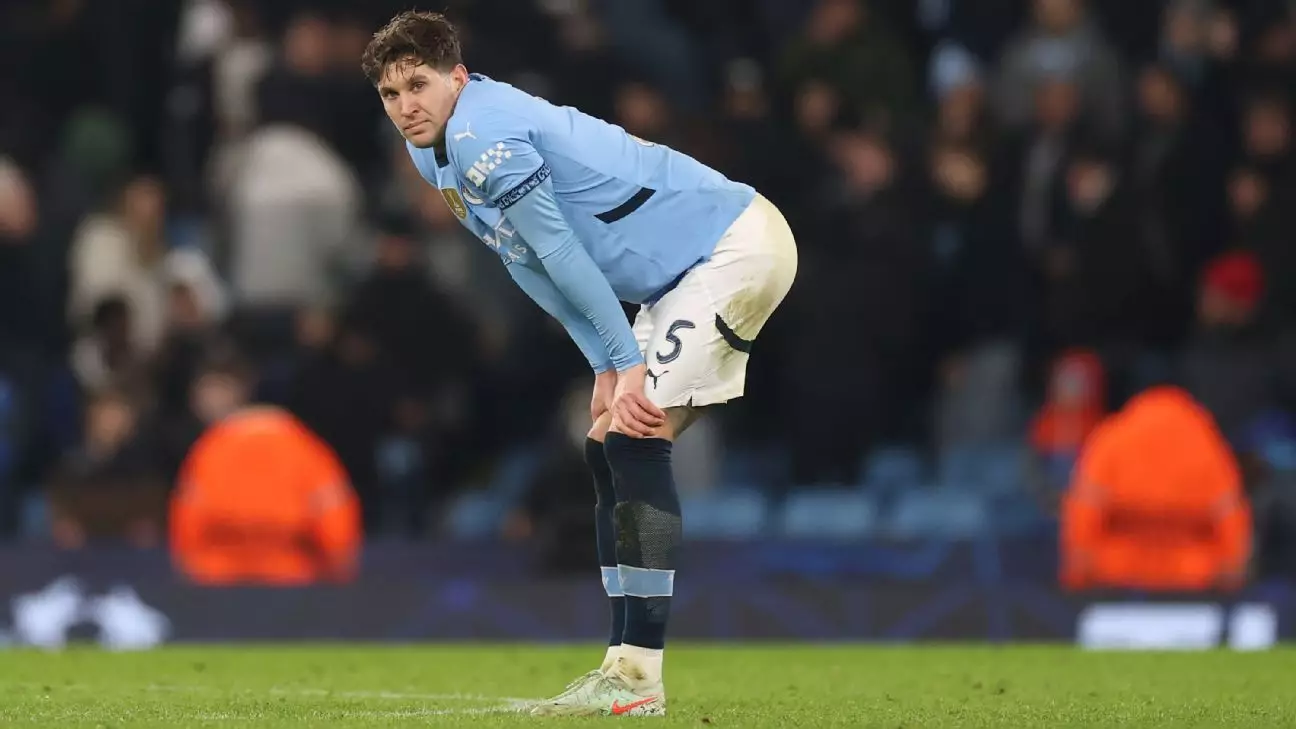In a stunning turn of events during Tuesday’s Champions League face-off, Manchester City found themselves on the wrong side of a 3-2 score against Real Madrid. This match showcased how finely balanced success can be and how minuscule mistakes can culminate in significant consequences. Despite leading until just four minutes before the final whistle, John Stones and his teammates were left grappling with feelings of anger and frustration after conceding yet another late goal. For a squad of their caliber, this defeat poses not just a mathematical challenge but also a psychological hurdle.
What transpired on the pitch is unfortunately not an isolated occurrence for Manchester City. Throughout the season, the team has repeatedly surrendered leads—this strikingly reflects a trend that has outweighed their aspirations for glory in various competitions, including the Champions League. The likes of Sporting CP and Brentford have exploited these lapses, and the pattern raises critical questions about the team’s mentality and their ability to manage crucial moments. “At that level, it is so difficult,” Pep Guardiola lamented, encapsulating the frustration that comes with the repeated inability to secure results in high-stakes matches. For a team labeled as favorites, these late-game collapses create a narrative of vulnerability that could impede their pursuit of silverware.
Stones’ post-match comments underscore the call for greater accountability among players. His emphasis on self-reflection and improving as a unit signifies an essential recognition of the gravity of the situation. However, it raises a broader query: can individual accountability translate into collective success? The ideal scenario would be for each player to confront their responsibilities on the pitch proactively. Guardiola’s reiteration of the need for players to assess their performances highlights a critical area that requires immediate attention. The question remains—how can they reinforce this sense of responsibility and ensure it manifests in game execution?
With the second leg looming in Madrid, Manchester City faces a daunting task. They must conquer not just the opposition but also their mental barriers. The enormity of the situation demands an unwavering belief, yet also a pragmatic acknowledgment of the challenges they face in the span of a mere 90 minutes. “We had a great opportunity to go to the Bernabeu with a 2-1 lead,” expressed Stones, indicating the missed chance that could have altered their fate. It is imperative for City to extract lessons from past disappointments to transform potential into progress.
As Manchester City prepares for their upcoming clash, the focus must shift toward resilience and learning from adversity. Each player carries the weight of this responsibility, and the challenge of translating turmoil into determination will be defining for their season. Ultimately, the ability to bounce back from such late-game heartaches can serve not only to salvage their Champions League ambitions but also to redefine their legacy in modern football. The path ahead is fraught with obstacles, but overcoming these trials could be pivotal in fulfilling their aspirations.
